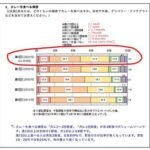Chipmunks are perpetually searching for two essential things: food and secure locations to store it. Throughout spring and summer, they busily gather nuts, berries, seeds, and other edibles, creating various caches within their territories. Aside from stockpiling, chipmunks are prolific breeders, producing two litters of 2-5 offspring each summer. They are widespread throughout the United States and often found near homes. Their presence depends on available food and shelter. Let’s explore what attracts these creatures and how to deter them if they become a nuisance.
Understanding Chipmunks
Chipmunks are small rodents belonging to the Sciuridae family, which also includes squirrels. Of the 25 species, all but the Siberian chipmunk are native to North America. They inhabit diverse environments, ranging from woodlands to deserts. The eastern chipmunk (Tamias striatus) is the most common in the US, measuring 5 to 6 inches in length, with light tan fur and a white underbelly. A key identifying feature is the black-and-white stripes along their backs.
Eastern chipmunks have adapted to living close to humans and thrive in urban and suburban settings. They construct elaborate burrows near food sources and may also occupy existing burrows or natural shelters such as tree hollows. These creatures are known for their expandable cheek pouches, which they use to transport food to their storage sites.
Chipmunk Behavior and Diet
Like squirrels, chipmunks do not truly hibernate. Instead, they rely on stored food to survive the winter months. They spend a significant amount of time gathering food and storing it in hidden caches. During winter, they only venture out to retrieve food from these caches. Consequently, spotting chipmunks in your yard usually indicates they are actively searching for food.
Despite their seemingly carefree behavior, chipmunks are naturally cautious. They must constantly be alert for predators and other animals that might steal their food. To ensure their safety, chipmunks prefer to live and forage in areas with ample cover and shelter, such as tall grasses, underbrush, bushes, logs, and other hiding places. They build their burrows, nests, and stashes in concealed and inaccessible locations.
So, What Are Chipmunks Favorite Food? As opportunistic herbivores, chipmunks have a broad diet. They are especially fond of small, easily transportable food items. A chipmunk’s diet in your neighborhood may consist of:
- Nuts
- Acorns
- Flowers and flower bulbs
- Berries
- Bird seed
- Fruits
- Mushrooms
- Bird eggs
The presence of chipmunks around your home often suggests a reliable food source is nearby. They will readily exploit bird feeders, flower beds, pet food, and garbage cans. They consistently return to these sources to replenish their hidden caches. Fruit trees, berry bushes, seed-producing trees, and other accessible food sources can inadvertently attract and sustain chipmunks and other rodents.
Chipmunks prioritize safety while eating and foraging. Easy access around your yard will make chipmunks feel secure.
Effective Chipmunk Deterrence
To deter chipmunks, start by limiting their access to unnatural food sources:
- Regularly clean up fallen seeds around bird feeders.
- Store seed bags and pet food inside a garage or home.
- Secure trash cans at night to prevent chipmunks from accessing them.
- Protect flower and vegetable gardens with fencing.
Next, address natural food sources and nesting areas:
- Maintain a frequently mowed lawn to reduce hiding places.
- Promptly collect fallen fruit before it rots.
- Trim bushes to prevent excessive growth.
- Seal any holes in trees, sheds, and porches.
- Fill in burrows and ground holes.
- Fence off hiding places, such as beneath porches or decks.
By reducing food sources and limiting hiding places, you can effectively deter chipmunks from your property.
Professional Chipmunk Control
Managing chipmunk populations can be challenging. Professionals offer solutions for managing infestations. They identify ways to rodent-proof your property and use live traps to relocate existing chipmunks.
Contacting wildlife control specialists can remove chipmunks from your property. They can also provide guidance on preventing future infestations.

